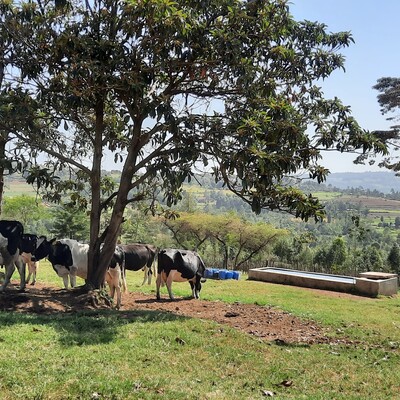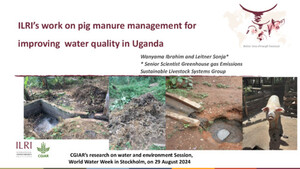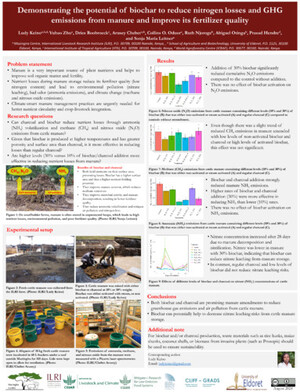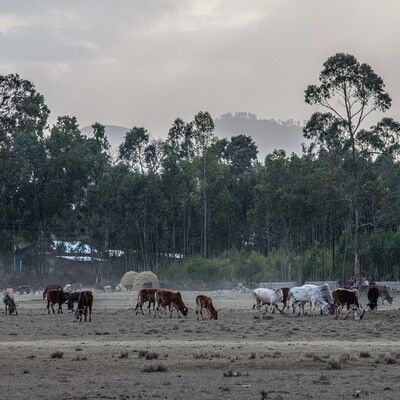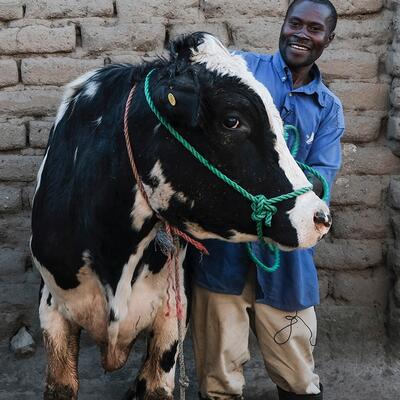
CIRNA - CIRcularity of Nutrients in Agroecosystems and co-benefits for animal and human health
The CIRNA project aims to develop and promote farmer-approved manure management practices that address environmental, health, and economic concerns, and contribute to sustainable development goals. The research questions focus on identifying suitable manure management practices for smallholders and understanding the trade-offs and synergies within an agroecological framework. Additionally, the project seeks to inform policy by providing recommendations based on its findings.
Context and aims
Smallholder crop-livestock farms in sub-Saharan Africa are confronted with limited access to plant nutrients, particularly synthetic fertilizers. The low use of synthetic fertilizers is attributed to financial constraints, which are exacerbated by current global events like the Ukraine war and volatile energy prices, and jeopardize food security and nutrition in Low-and-Middle Income Countries (LMIC). As a consequence, organic alternatives for plant nutrients, specifically livestock manures, are critically needed to enhance crop yields and improve soil fertility.
However, inadequate manure management poses risks, including nutrient losses, environmental pollution, and health issues. Little is known about which practices can address both environmental and health concerns at the same time, while also ensuring good nutrient availability for crops and being feasible for smallholder farmers. The CIRNA project addresses these questions in a multidisciplinary approach that balances biophysical, social, health, and economic dimensions of manure management in Kenya and Uganda.
Manure management practices differ in their technology-readiness levels, ranging from simple, scientifically and practicably tested approaches that are ready for scaling, such as cleaning animal housing or composting, up to novel approaches like biochar and effective microorganisms that have shown promise in the lab but still need field validation. The CIRNA project will combine field and lab trials in a co-creation of knowledge approach, working closely with farmers, extension workers, local researchers, and development actors to identify manure management practices that are suitable for smallholders and are safe for humans, animals, and the environment.
Efficient manure management leads to several co-benefits including climate change mitigation & adaptation. This is particularly important because of the livestock sector's role in national climate strategies, and the need for improved manure management strategies in the context of climate change mitigation. The CIRNA project will review current policies and develop guidelines and policy recommendations because sustainable management options can only be successfully scaled in an enabling political environment.
Social Media
Follow the CIRNA project on LinkedIn: https://www.linkedin.com/groups/10052047/
Our partners
- Agroscope
Division Integrative Agroecology
https://www.agroscope.admin.ch/agroscope/en/home/about-us/organization/competence-divisions-strategic-research-divisions/agroecology-environment/integrative-agroecology.html - Regenerate Africa
https://regenerateafrica.org/ - The Women Farmers Association of Kenya (WoFaAK)
https://wofaakenya.org/ - Vétérinaires Sans Frontières Germany (VSF Germany)
https://www.vsfg.org/uganda/
https://www.vsfg.org/kenya/ - Makerere University Uganda
https://mak.ac.ug/ - Maseno University Kenya
https://www.maseno.ac.ke/ - Food and Agriculture Organization (FAO)
Team of the Global Livestock Environmental Assessment Model (GLEAM)
https://www.fao.org/gleam/en/















